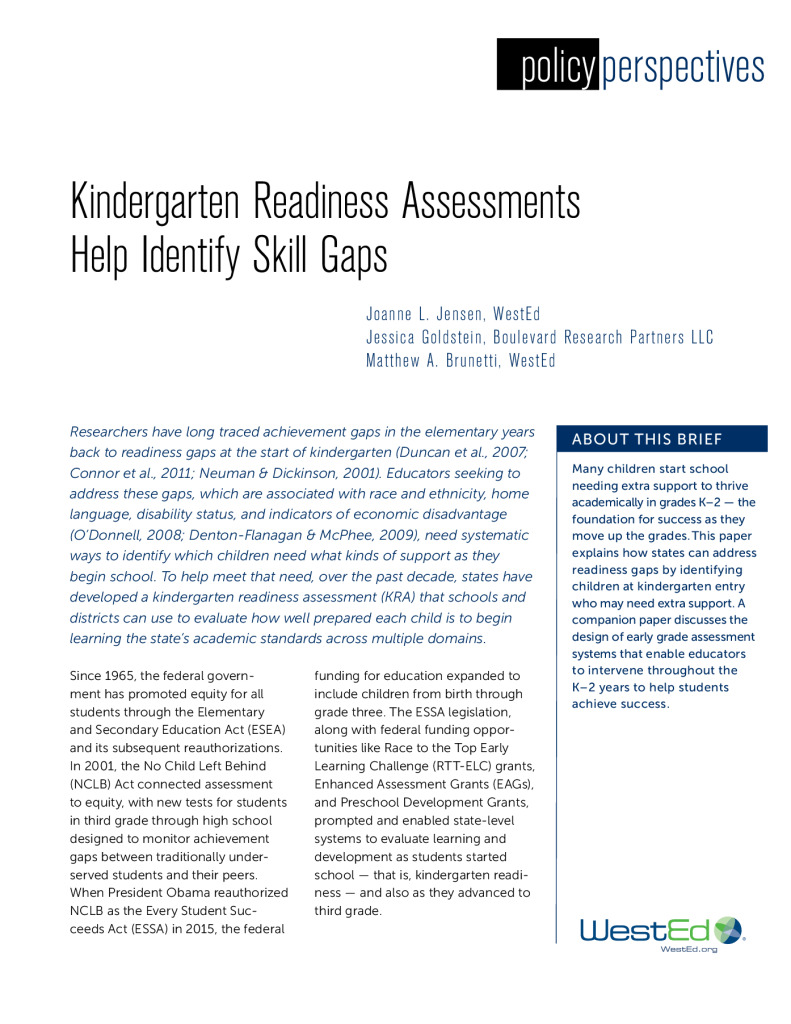Resource Hub
Explore guides, research papers, policy briefs, and tools to aid decisions on standards and assessments.
Kindergarten Readiness Assessments Help Identify Skill Gaps
Researchers have long traced achievement gaps in the elementary years back to readiness gaps at the start of kindergarten. Educators seeking to address these gaps, which are associated with race and ethnicity, home language, disability status, and indicators of economic disadvantage, need systematic ways to identify which children need what kinds of support as they begin school.
To help meet that need, over the past decade, states have developed a kindergarten readiness assessment (KRA) that schools and districts can use to evaluate how well prepared each child is to begin learning the state’s academic standards across multiple domains.
In this paper, we review the status of states’ development of KRAs and how states are using KRA data to profile skills at kindergarten entry, help track longitudinal progress, provide early warnings for needed intervention, and guide policy decisions.

